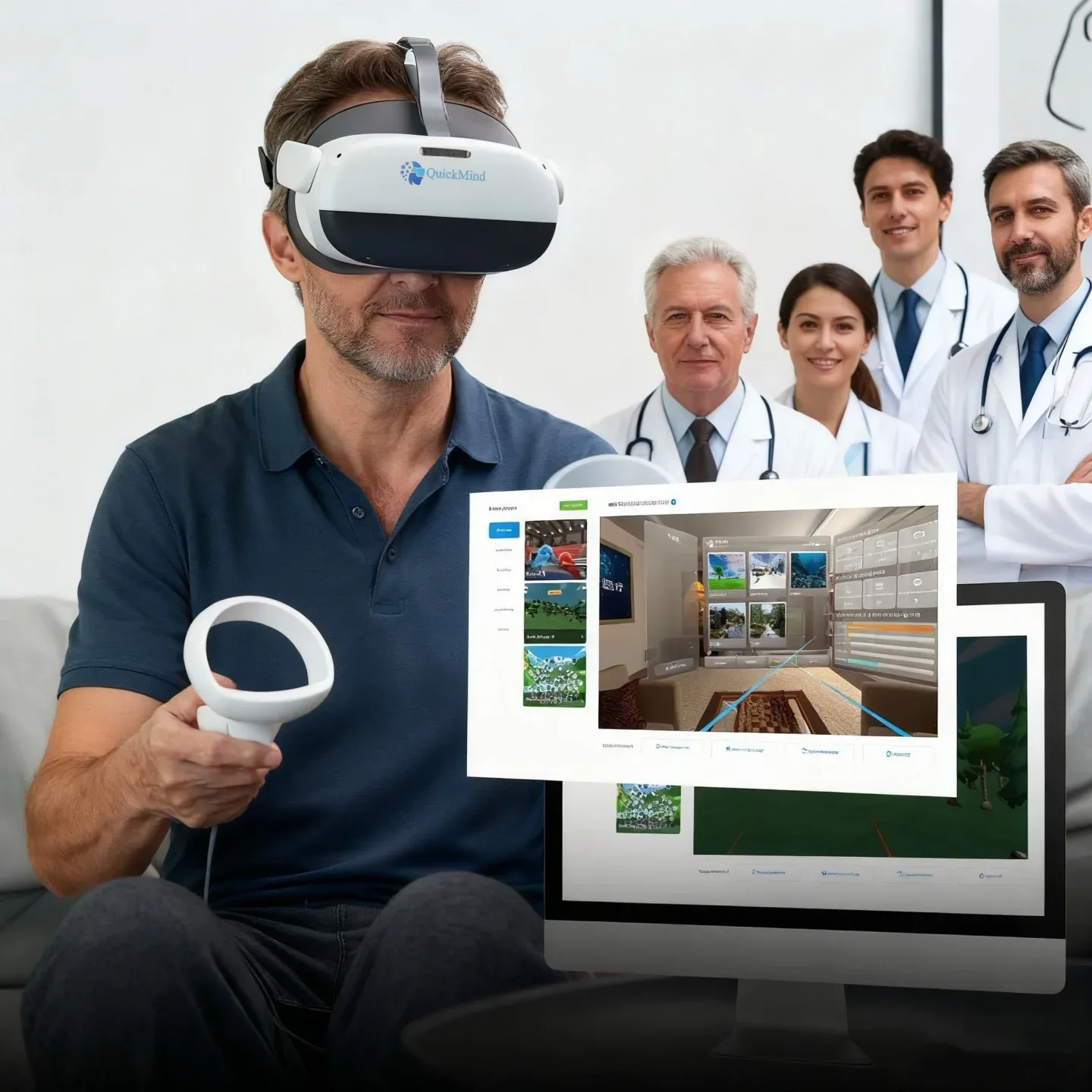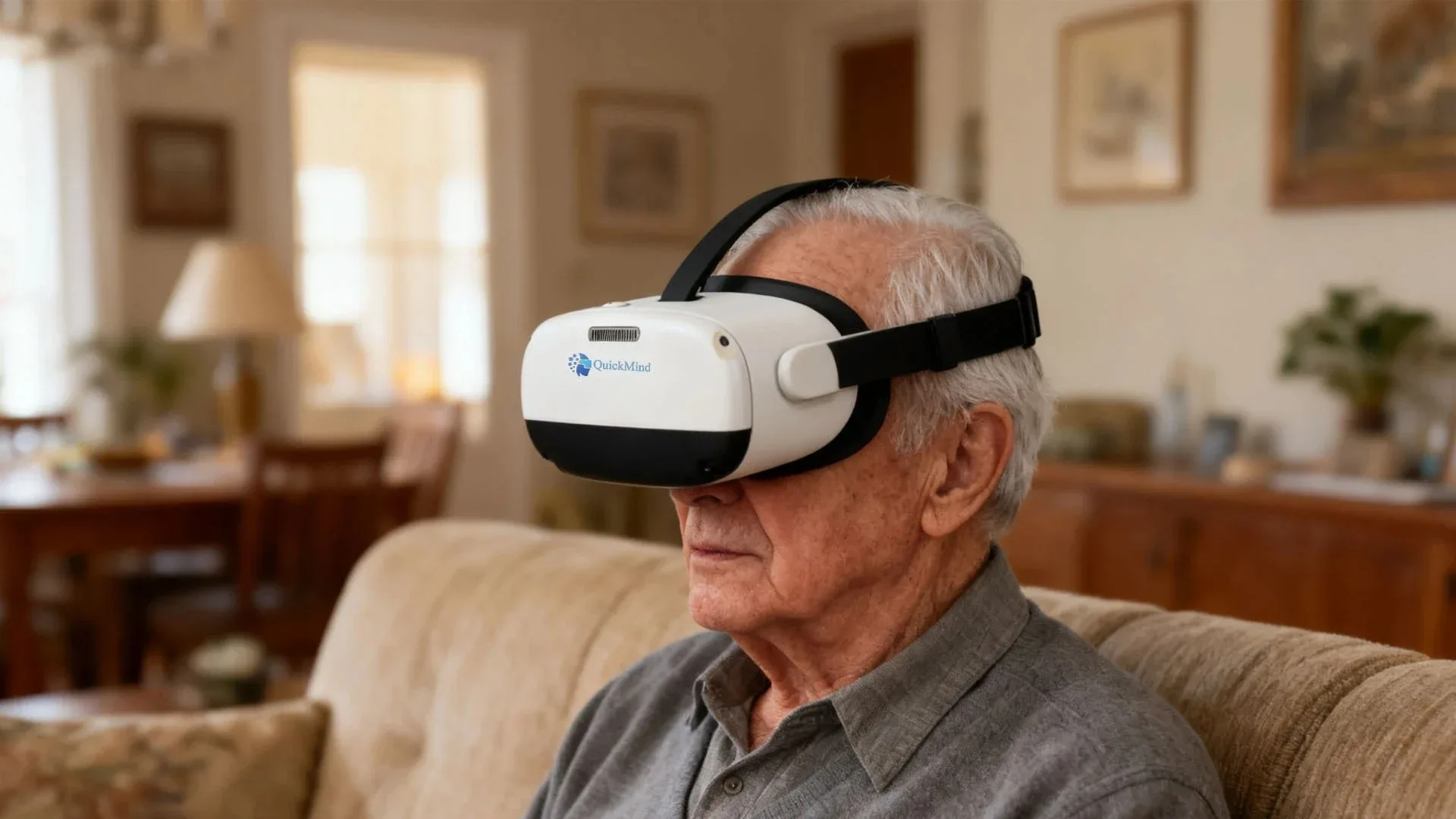
Increasing inquiries suggests that Virtual Reality intervention can considerably boost the quality of subjects living with brain function deterioration. By moving them to relaxing environments, VR offers a original possibility for mind energizing, sentimental adjustment, and personal connection. Many tests have shown that VR therapy can minimize anxiety states, apprehension, and gloom in dementia users while also boosting their remembrance, focus, and dialogue proficiency.
- VR permits people with dementia to recollect treasured recollections through hands-on emulations.
- Likewise, it can allocate a safe and empathetic space for community involvement, promoting a awareness of link and togetherness.
- Professionals conclude that VR therapy has the potential to reinvent dementia service by supplying new and creative avenues to handle the elaborate obstacles faced by people coping with this disease.
Cutting-Edge Digital Interventions for Alzheimer's Disease
Increasing software-based solutions are proving useful in the territory of mental improvement for persons dealing with cognitive Alzheimer's illness. These software capitalize on technical resources to activate brain processing and likely impede the spread of the condition. Gamified exercises, personalized support, and thought training are some instances of methods being explored in this dynamic field. While examinations are happening, digital therapeutics enable a complementary route for augmenting the quality of those affected by Alzheimer's ailment.Navigating Reality Through Virtual Landscapes: A Novel Approach to Alzheimer's Treatment
Touching subjects struggling with Alzheimer's disease, the incremental degradation of mental capacity and brain functions can drastically affect their skill to engage with the external setting. This harmful malady often elicits in detachment, distress, and a lessened individuality. Current developments in virtual reality technology unveil a pioneering option to address these barriers by building immersive settings that can encourage the brain and revive cognitive function.
Digital immersive sceneries tailored specifically for those with Alzheimer's can carry them in comforting environments, such as their youthful dwelling or a beloved garden, reminiscing positive memories and diminishing anxiety. Through interactive practices, these virtual places can also engage cognitive abilities like cognition, awareness, and decision-making.
The expected outcomes of virtual reality in Alzheimer's healing are massive. Early examinations have demonstrated beneficial results, with cases demonstrating improvements in cognitive performance, mood, and overall quality of life. As this system moves forward, it holds the key to changing the way we approach Alzheimer's disease, granting a new pathway for management and advocacy.
Virtual Memory Therapy for Alzheimer's Clients
Reminiscence therapy is a widely recognized technique used to boost cognitive function and emotional well-being in individuals with Alzheimer's disease. This time-honored form of therapy involves motivating patients to retrieve past experiences, often through communication. However, a groundbreaking approach is emerging: VR-mediated reminiscence therapy.
This immersive system utilizes virtual reality headsets to shift patients in faithful environments that recall memories from their past. By recapturing these simulated settings, individuals with Alzheimer's can connect with their past in a meaningful way.
Innovative VR Techniques to Aid Memory and Cognition in Dementia
Virtual reality (VR) is emerging as a hopeful tool in the fight against dementia, supplying state-of-the-art ways to boost memory and cognition. By forming immersive environments, VR can guide individuals with dementia remember memories, interact in meaningful activities, and enhance cognitive functions. Studies have shown that VR interventions can effect substantial improvements in memory recall, attention, and navigational awareness. Moreover, VR provides a safe and favorable space for individuals with dementia to communicate, reducing feelings of isolation and unease.
- In addition, VR can be modified to individual needs and preferences, allowing increased levels of collaboration.
- Considering the capabilities of VR, extended research is needed to fully understand its long-term benefits in dementia care.
Reviving Recollections, Restoring Bonds: VR's Influence on Alzheimer's Social Interaction
Simulated synthetic settings is emerging as a state-of-the-art platform in the branch of dementia care. By building compelling and social worlds, VR has the opportunity to stimulate memories, develop social interaction, and advance the overall quality of life for participants managing Alzheimer's. Considered one of the promising aspects of VR is its ability to transfer users to recognizable settings and experiences from their past. Whether it's a jaunt inside a childhood home or a reenactment of a beloved holiday, these virtual experiences can stimulate happy memories and solidify cognitive power. Furthermore, VR can aid social interaction by connecting individuals with others who share similar preferences. This can be particularly advantageous for people with Alzheimer's who may grapple with traditional social contact. By offering a safe digital therapy and absorbing virtual space, VR can minimize feelings of isolation and loneliness, which are common among users coping with Alzheimer's. Overall, VR holds immense potential for overhauling the lives of individuals with Alzheimer's by revitalizing memories, strengthening connections, and boosting their quality of life. As technology keeps on grow, we can expect even more creative applications of VR in the field of dementia care.Exploiting Cognitive Training: Deploying VR in Cognitive Symptom Control
VR technology is rapidly emerging as a game-changing tool in the realm of cognitive training, particularly for people experiencing Alzheimer's disease. By immersing patients in interactive and engaging virtual environments, VR-based interventions can boost cognitive functions such as memory, attention, and problem-solving. These games regularly incorporate elements of storytelling, exploration, and social interaction, making the training process greatly immersive. Studies have shown that VR-based cognitive training can lead to marked improvements in cognitive performance, hypothetically delaying the progression of Alzheimer's symptoms. Moreover, VR provides a safe and controlled environment for patients to practice new skills and grow their confidence.
- Game-centric tactics in VR training can make it deeply absorbing and pleasant for persons with mental decline.
- VR simulations can offer convincing scenarios that spur and energize cognitive functions.
- Personalized VR experiences can cater to particular desires and modalities.
VR Platforms as Therapeutic Solutions for Dementia
Captivating VR experiences offer a unique and promising avenue for participants with mental deterioration. These systems can generate familiar environments, allowing those affected by cognitive decline to relive cherished memories and encourage a sense of consolation. By mitigating the issues of dementia, VR worlds have the potential to enhance quality of life for both people and their assistants.
- Studies indicate that VR strategies can considerably impact cognitive function, sentimental well-being, and even motor abilities in individuals with dementia.
- Moreover, VR offers a safe and supportive environment for interaction, reducing the risk of danger.
- What is more, VR can boost social links by allowing individuals with dementia to bond in computer-generated activities with others.
Virtual Reality for Prompt Alzheimer's Screening and Intervention
neurodegenerative Alzheimer's type represents a intricate problem, often going undetected in its early stages. Albeit, virtual reality (VR) is unfolding as a cutting-edge tool for prompt recognition. Through immersive environments, VR can analyze cognitive operation in ways that traditional methods have difficulty to. This capability allows for timely intervention strategies, potentially reducing disease progression and enhancing the quality of life for users with Alzheimer's.
- VR systems measure cognitive responses such as memory and spatial awareness within controlled environments.
- Adaptive virtual reality tools motivate subjects to engage in neural stimulation efforts.
- Computer-generated spaces provide social conditions for Alzheimer's clients to bond and mingle.
Enhancing Dementia Communication and Social Interaction Via VR
{In the realm of dementia care, innovative technologies are emerging to advance the lives of individuals living with this challenging condition. Virtual reality (VR) is one such innovation that holds immense capacity for connecting individuals with dementia through improved interaction and communication. By fabricating interactive simulated worlds, VR can energize cognitive function, reduce behavioral issues, and ultimately improve the overall well-being of individuals with dementia.
VR experiences adapted to dementia patient needs can range from nostalgia therapy sessions that guide clients through remembered environments, to interactive games that promote social interaction and cognitive practice. Furthermore, VR has the skill to connect subjects affected by dementia with companions, regardless of physical barriers, fostering a sense of community.
- VR can empower in reducing agitation and anxiety by providing a calming and engaging environment.
- Research have shown that VR interventions can lead to improvements in cognitive function, mood, and social interaction in persons living with cognitive impairment.
- As technology develops in evolve, we can expect even more innovative and {effective|beneficial|helpful|powerful|impactful|successful|productive|efficient
